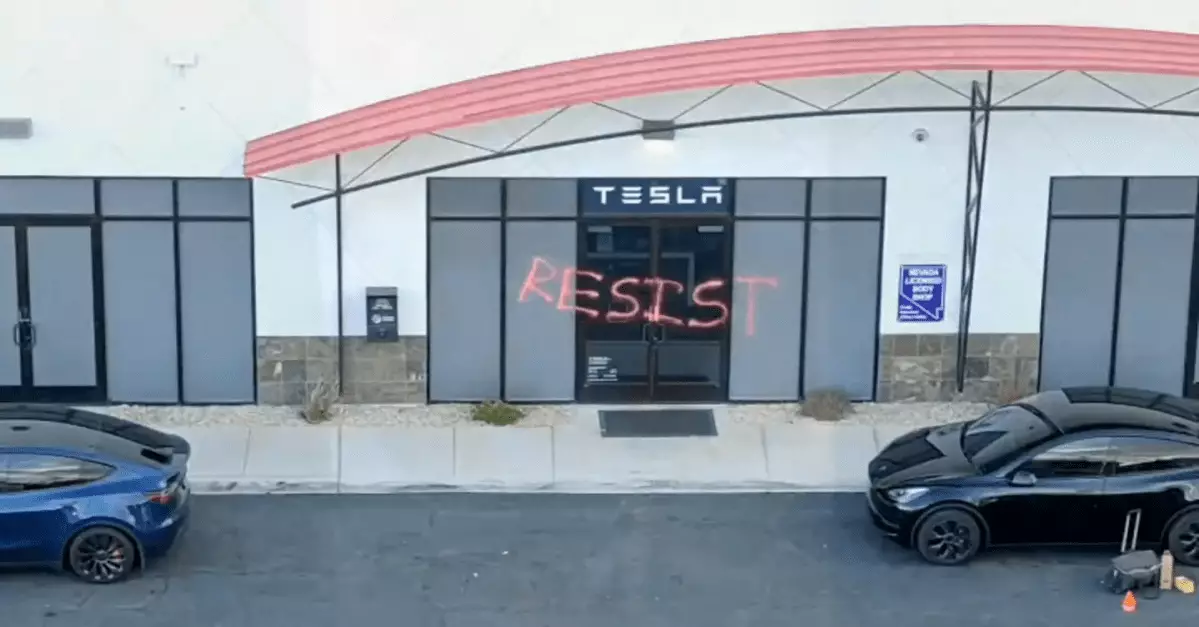In recent months, Tesla has become the focal point of a worrying wave of vandalism, culminating in incidents that are now being treated with the seriousness typically reserved for acts of domestic terrorism. Two separate events—a Molotov cocktail assault in Las Vegas and a suspicious fire in Kansas City—have intensified concerns about the motivations behind such acts, especially against the backdrop of rising discontent within certain segments of the automotive community.
Umar Shakir, a writer with a penchant for electric vehicles, has highlighted these troubling developments from the standpoint of a market that is undeniably shifting. This involves not only technological evolution but also a palpable change in consumer sentiment. The incidents prompt us to question: Are these actions merely isolated acts of rebellion, or do they reflect a larger ideological battle over the future of transportation?
The Role of Authority in Response to Vandalism
Law enforcement bodies, including local police and the FBI’s joint terrorism task force, have swiftly escalated their response to what they initially categorized as routine arson. This shift implies a broader apprehension about how such acts reflect increasing polarization and hostility toward green technology and the electric vehicle market, which Tesla has come to symbolize. In a world fraught with division over environmental ethics, these violent responses underline deep-rooted fears about change and innovation.
Deputy Fire Chief Jennifer Wyatt and FBI Special Agent Spencer Evans have been vocal about the risks associated with this behavior, urging potential offenders to reconsider their motives. Such appeals reveal an urgent need for societal dialogue rather than aggression. However, one might wonder: does this label of ‘terrorism’ serve as a disproportionate response that might stifle legitimate critique of a company?
Elon Musk’s Stance and Public Reaction
The aftermath of these incidents has seen Tesla CEO Elon Musk labeling the actions as acts of terrorism, asserting that they are unwarranted and negating the company’s mission of sustainable transportation. His public stance raises critical questions regarding corporate responsibility and the expectations tied to influential figures in the technology sector.
Musk’s comments have sparked widespread debate about civil discourse versus violent dissent. Some argue that labeling such acts as terrorism could inhibit valid discussions about electric vehicles’ impact on the environment and traditional automotive industries. These events serve as a wake-up call, showcasing how innovation can provoke fear and resistance, revealing society’s struggles with acceptance of new paradigms.
The Broader Implications for Society and the Automotive Industry
The troubling trend of vandalism against Tesla does not exist within a vacuum; it underscores the societal challenges in embracing technological advancements. As electric vehicles become increasingly common, they are met with not only enthusiasm but also anxiety from those who perceive them as a threat. The ramifications extend far beyond the automotive industry—echoing age-old fears around technological displacement.
As Tesla continues its march toward a more sustainable future, it must navigate this complex landscape of public sentiment and opposition. While illegal acts of sabotage will likely evoke legal and political ramifications, they also compel us to reflect on the broader discourse around innovation, ethics, and societal change. The reaction to these actions may very well shape the future of electric vehicle adoption and the cultural discussions that accompany it. In an increasingly polarized world, the need for dialogue over division has never been more critical.


Leave a Reply